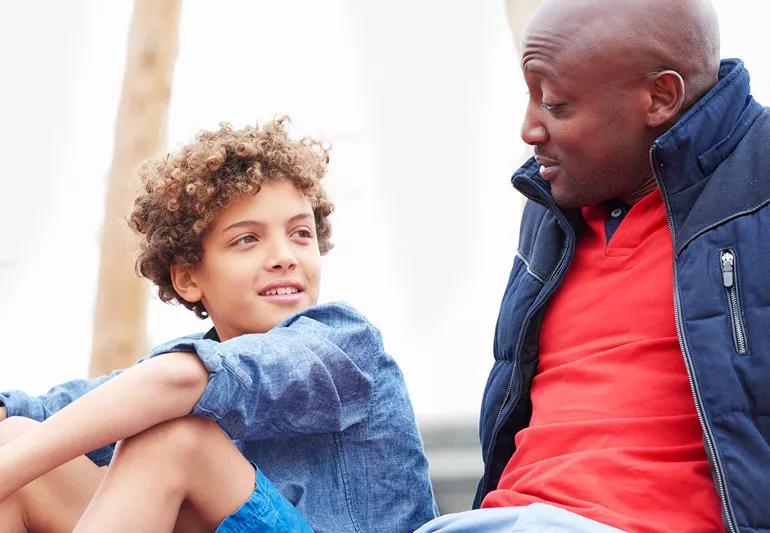Counter stress and balance priorities

Image content: This image is available to view online.
View image online (https://assets.clevelandclinic.org/transform/85f4e5f5-22f7-41c2-be49-36cb5d453c54/sonDadTalkStress-591210321-770x553_jpg)
A child and adult talking
You know the drill (perhaps all too well). Your daughter’s up for school at 6:30 a.m. and out the door in a flash. And after the dismissal bell rings, it’s time to cram in homework and grab a bite to eat. Then it’s gymnastics until 8:30 every evening (well, it’s really past 9 p.m. by the time you get home). And repeat.
Advertisement
Cleveland Clinic is a non-profit academic medical center. Advertising on our site helps support our mission. We do not endorse non-Cleveland Clinic products or services. Policy
Child and adolescent psychiatrist Molly Wimbiscus, MD, readily acknowledges, “Families love sports, but parents just need to be aware of the stress it can cause and do what they can to help their kids balance priorities.”
Here, Dr. Wimbiscus provides some advice on how families can provide that balance between sports, family and academic life.
A: Yes — especially for families involved in traveling sports teams, multiple competitions and more than weekly practices. The time commitment and interruption in evening and weekend activities can be a real issue.
A: There are many good things about being involved in sports, including socialization with peers, a sense of belonging, satisfaction in skill mastery, learning good sportsmanship and working hard towards a goal personally and as a group. And of course, staying active. With childhood obesity an issue, and 1 in 3 children not getting enough exercise, it is a good thing when kids get involved in sports.
A: It can be exhausting if a child is over involved in sports activities. It can interfere with academic success and cause stress. Sometimes the focus on the athletic competition can outweigh the value of the sports activity. It can also interfere in family life, evening activities, diversity of activities and mastery in other areas. And it can easily begin to interfere in sleep schedules if children have evening practices and they have to finish homework. This is why it is so important to be disciplined about staying on a schedule with practices, homework and bedtimes.
Advertisement
A: Always monitor their functioning in academic, social and emotional spheres. If behaviors, sleep patterns, grades, social engagement and emotional responses begin to change, discuss these changes with your child. Be open in talking with him or her and discuss a plan to make things better.
A: Each child is different. Some children may love sports and not recognize the strain it is causing them. Others may be very capable of explaining the stress of their lives. It’s up to parents to recognize issues and to talk with them about it.
A: The time children spend as a family doing fun activities can be just as valuable for self-esteem and skill mastery. Parents can model good sportsmanship for children in many settings. Engage in family and neighborhood sports activities together such as community runs, bike rides, swims, and/or hiking around your neighborhood or the parks.
And finally, remember: Kids learn by example. Try to be a good role model for your kids by staying active and living in a healthy and balanced way. You can be sure that they will catch on!
Advertisement

Delivered every Tuesday!
Sign up for our Health Essentials emails for expert guidance on nutrition, fitness, sleep, skin care and more.
Learn more about our editorial process.
Advertisement
Takeaways from sports psychology
What you can do to be the ideal sports parent
Athletic trainers help keep student athletes safe, healthy and happy.
Protective equipment like sports cups can help avoid injury
Each child and condition is unique, but most kids can play with proper precautions
An annual exam looking at heart health
For starters, they’re not just football injuries
Type 2 diabetes isn’t inevitable with these dietary changes
Applying a hot or cold compress can help with pain
Pump up your iron intake with foods like tuna, tofu and turkey